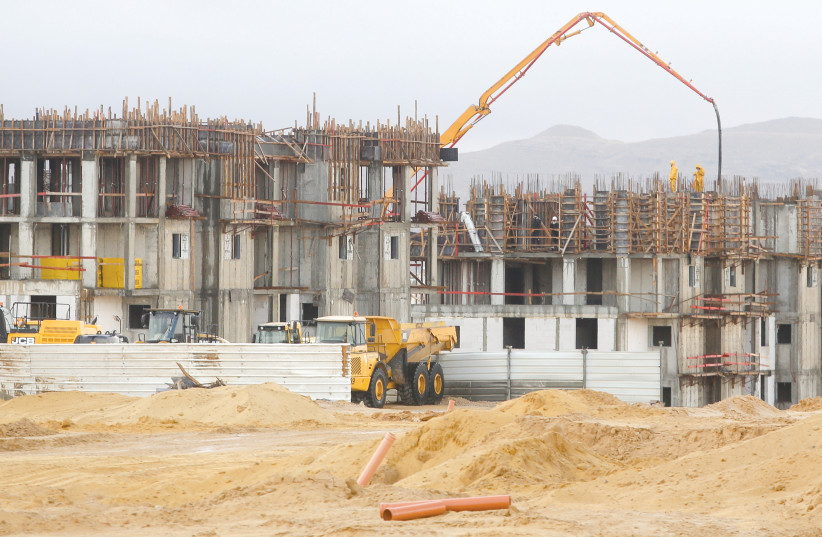The purchase tax on a second apartment will be raised to 8%, after the Knesset plenum approved the second and third readings.
The tax will be raised from its current level of 5% immediately. Properties will be taxed at 8% up to NIS 5,843,565, and 10% on any part of the value that exceeds this amount.
The law was set as a temporary provision for three years, with the possibility of extending it for another two years with the approval of the Finance Committee.
Seventeen Knesset members supported the bill, while 10 opposed it. The tax is intended to help curb housing prices and moderate the demand for apartments.
The purchase tax was 8% until July 2020, when then-finance minister Moshe Kahlon lowered it to 5% in an effort to stimulate more investors to buy properties. Investor demand escalated considerably after that, rising from 13% to 20% of all home sales in the market, and contributing to the sharp rise in home prices since then. This, in turn, pushed young couples out of the home market, the explanatory memorandum to the proposal noted.

Israel’s housing prices have risen by an average of 9.9% over the past 12 months and have more than doubled over the past decade, according to Central Bureau of Statistics data. The government has made reining in rising prices a primary goal of the coalition and has set a target of increasing the number of apartments by 300,000 in the coming years.
Finance Minister Avigdor Liberman, Construction and Housing Minister Ze’ev Elkin and Interior Minister Ayelet Shaked presented a broad plan last month to cool down the market, with 17 different components intended to increase the housing supply, bring structural changes to the market, and introduce short-term tactics to cool down demand and increase supply. Raising the purchase tax was among the items listed at the time.
A lack of housing supply is seen as the main reason for rising prices, alongside record-low interest rates and rising capital markets.
The Israel Land Authority (ILA), the government body in charge of managing the use of land in Israel, is widely blamed for neglecting to make new land available in an efficient or transparent fashion.
